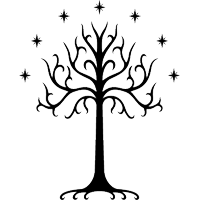Today, in an ongoing discussion about atheism, I posted the following:
In these times of white dispossession I hate metaphysical arguments. However, since I was a Christian during my early teens, and in my early twenties I fell (and escaped from) a New Age cult with peculiar ideas about “God,” let me enter the debate.
“I can’t call myself an atheist because it’s just as absurd to insist there is no God as it is to insist there is. I can’t call myself an agnostic because spiritually I’m pretty sure there is no God. Then we get into the whole Jungian God that arises from man and we’re back to square one.” – Svigor
Depends on how you interpret Jung. “God” is but the projection of the Jungian Self of a human being at a given point of the human theodicy, I wrote in the Epilogue of my book The Return of Quetzalcoatl. You are not back in square one if you interpret the Jungian Self from a pantheistic, or rather “panentheistic” viewpoint.
But the idea of God cannot be reduced to the Jungian philosophy of the Self. It has also to do with the greatest tragedy of the human soul. Just take a look at the astounding figures of infanticidal rates through history and prehistory in one of my Quetzalcoatl chapters. The God idea has obviously to do not only with the Abraham/Isaac tale, the starting point of Judaism and Christianity; how humans have tried to solve the problem of the attachment to the perpetrator is a factor too (e.g. trying to attach with daddy, a biological imperative as studied in developmental psychology, while at the same time he sacrificed one of our siblings).
In other words, for a small child there’s no God except his parents. But since no human has a perfect attachment with his parents, sooner or later he will project a much safer “attachment” elsewhere, even if imaginary.
But even then the idea of God is incommensurable for psychological reductionism. Back to square one? No. While I don’t believe in a personal God (a personal God in a strictly theistic sense is indeed projection as per trying to solve the perennial problem of attachment to the perp – cf. my book), my educated guess is that there must be something very odd in the universe. Discussing with Larry Auster in my blog I told him:
“When I compare the look in the eyes of a white shark with that of the dolphins’ eyes I am simply at a loss to explain Darwinianly how could the respective eyes depict windows to two opposite ‘souls,’ or perhaps should I say frames of minds (a ruthless beast and a friendly animal)?”
More to the point on that line of thinking, the visual experience of Nordish female beauty intuitively “proves” a sort of teleological, evolutionary panentheism.
 That is why the current anti-white zeitgeist, which implies the extinction of the evolution’s crown (if we imagine it as idealistically as the most inspired painters depict the eternal feminine) is the sin against the holy ghost. Hegel and Schelling would come handy here, but only if we feel Nature’s divinity through, say, Wordsworth’s eyes.
That is why the current anti-white zeitgeist, which implies the extinction of the evolution’s crown (if we imagine it as idealistically as the most inspired painters depict the eternal feminine) is the sin against the holy ghost. Hegel and Schelling would come handy here, but only if we feel Nature’s divinity through, say, Wordsworth’s eyes.The problem with this is that it’s all subjective, and only those who share the poet’s numinous experience can glimpse the non-theistic providential realm.
























4 comments:
how could the respective eyes depict windows to two opposite ‘souls,
Well, they have completely different histories with the sharks first appearing over 400 million years ago the dolphins only 10 million years ago. We are likely to feel closer to dolphins as they are mammals like us and sharks are fish.
I have just seen close-up photographs of an eye of a big white shark without showing the jaws. It seems that the surviving fish that are as old as the sharks and that don’t have the frightening look in the eyes of the big white is a visual effect of the whole head of the shark, with the jaws. However, the old saying that the look in the eyes is a window to a man’s soul rings true to me (but is this so in a metaphysical, physiognomical sense like those guys liked to speculate in classic German idealism?).
The architecture of the Ichthyosaur looks like that of a dolphin. But they aren’t in any way related. Obviously it’s the evolutionary result of what’s the best adaptation for a swimming body model and this can indeed be explained in Darwinian terms. However, my educated guess is that the look of the Ichthyosaur would not express the friendliness of the look of the more advanced animal, the dolphin. Is there is some “soul” stuff going on there (even though I don’t believe in post-mortem survival)? Anyway, it’s a non-falsifiable hypothesis since we cannot see the eyes of an Ichthyosaur.
And thanks for your kind words about me in one of your latest posts at Mangan’s.
I supose you mean this:
> La envidia o pesar de la gracia ajena
http://www.corazones.org/espiritualidad/espiritu_santo/pecado_contra_es.htm
No, actually I stole the phrase “sin against the holy ghost of life” from Nietzsche. Not sure if he used exactly those words, I’ll have to reread it. But of course: the first time I heard it was in the church.
Post a Comment